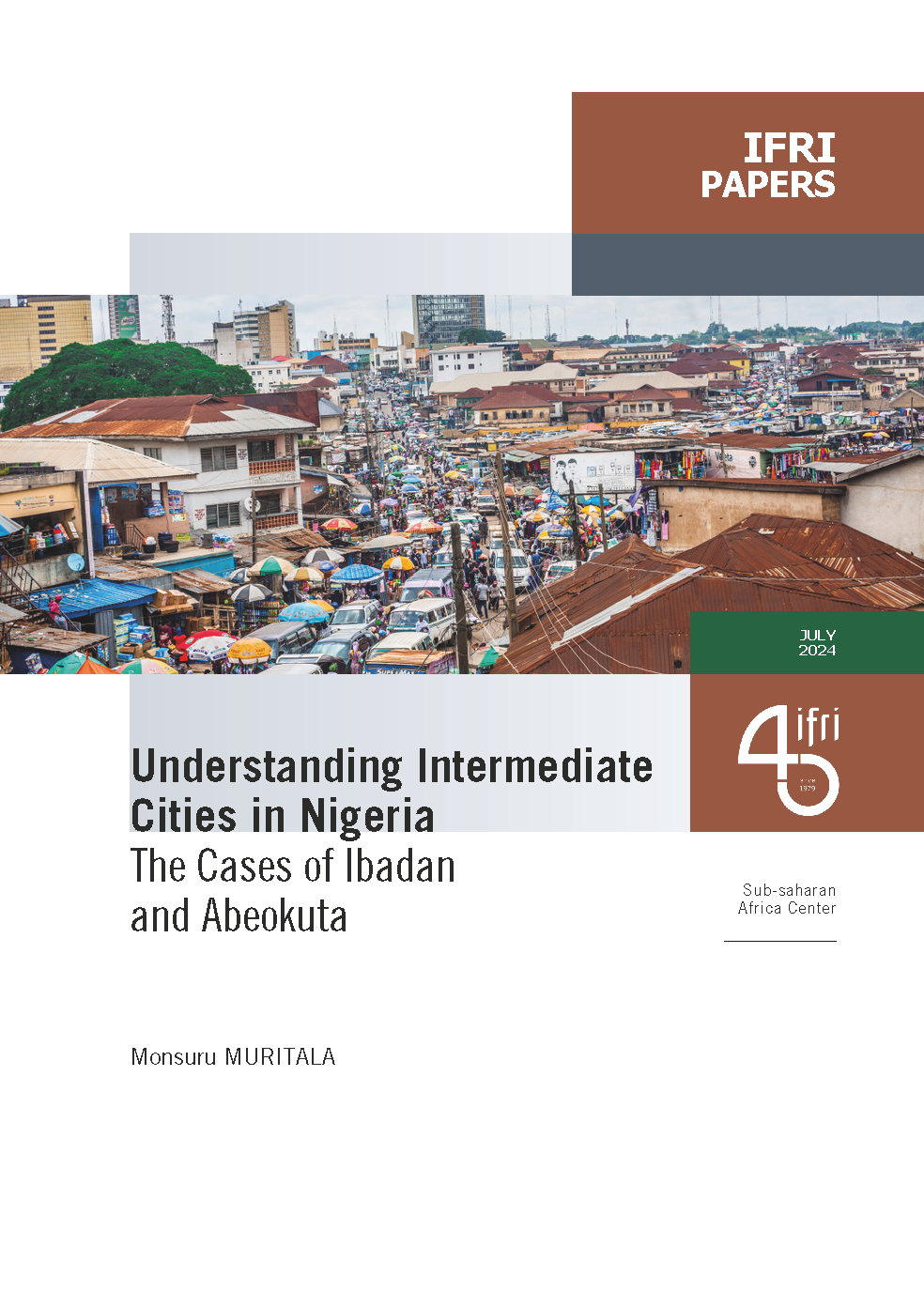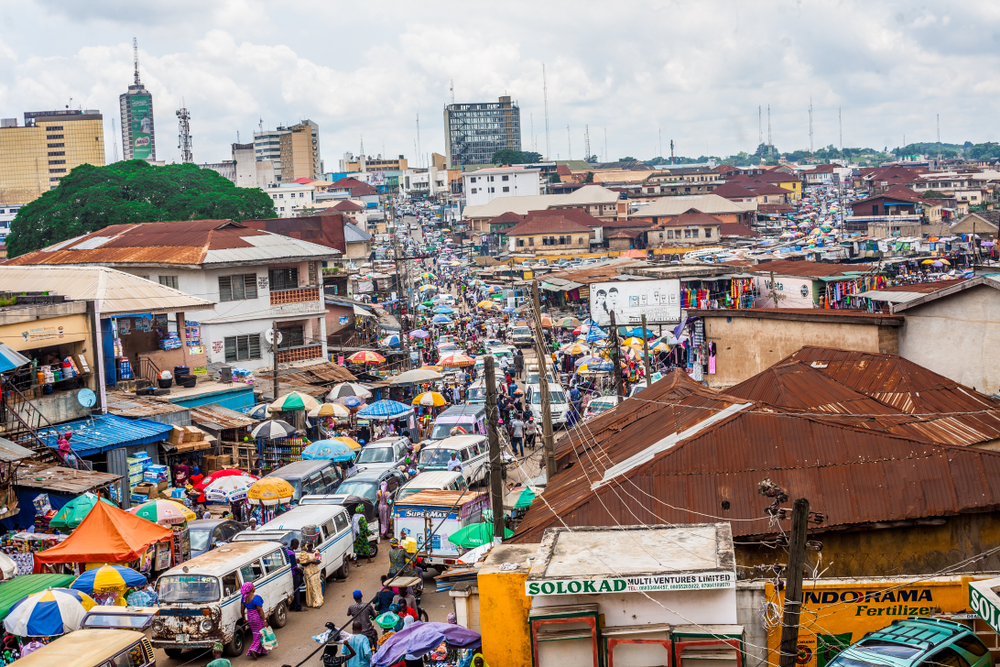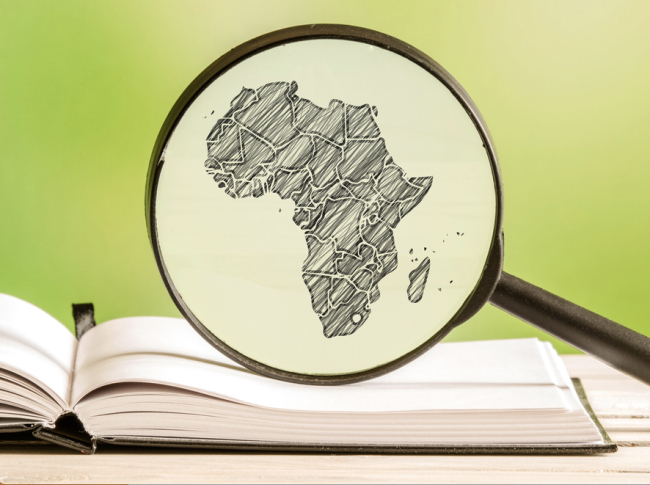Understanding Intermediate Cities in Nigeria: The Cases of Ibadan and Abeokuta

Nigeria is known for its rapid demographic and urban growth.

The attention of media and scholars has been focused on the impressive expansion of the Nigerian megacity Lagos, whose population is expected to increase from 16 million in 2024 to around 40 million in 2035. Consequently, less evidence exists about other city categories in Nigeria, such as intermediate or secondary cities. Yet, more recent research on urbanization dynamics in Africa has highlighted the relatively higher urban growth rates in so-called “intermediate cities”.
This paper contributes to the debate and aims at providing a different perspective on urbanization in Nigeria: based on a historical approach, this Ifri Paper assesses the development of two intermediate-satellite cities to Lagos: Abeokuta and Ibadan.
It argues that Lagos is not a stand-alone city but that it relies on its broader urban network composed of intermediate cities. The paper describes the historical development of Ibadan and Abeokuta, which have evolved concomitantly with the growth of Lagos. It shows that transport infrastructure, established since the colonial period has been key for the relationship between these cities.

Available in:
Regions and themes
ISBN / ISSN
Share
Download the full analysis
This page contains only a summary of our work. If you would like to have access to all the information from our research on the subject, you can download the full version in PDF format.
Understanding Intermediate Cities in Nigeria: The Cases of Ibadan and Abeokuta
Related centers and programs
Discover our other research centers and programsFind out more
Discover all our analysesGabon: Has an — Almost — Exemplary Transition Produced a New Political Model?
In two rounds of voting, on September 27 and October 11, 2025, the citizens of Gabon elected the members of both their local councils and the new national assembly. This marked almost the final stage of political transition, little more than two years after the coup d’état that had overthrown the more than five decades old dynastic regime of the Bongos — Omar, the father, who died in office in 2009, and then his son Ali, who is now in exile.
Claiming "The People": Youth Booms, Ailing Authoritarians and "Populist" Politics in Kenya, Uganda, and Tanzania
This study analyses the emergence of so-called “populist” political tendencies in three East African countries: Kenya, Uganda and Tanzania. It builds its analysis on a wider discussion of the term “populism”, its use and applicability in (eastern) African settings before going on to examine the drivers of three cases of populism: William Ruto’s 2022 election victory in Kenya and the “Hustler Nation”; Bobi Wine’s opposition to Yoweri Museveni in Uganda; and John Magufuli highly personal style of government in Tanzania.
The Contradictory Impacts of Western Sanctions on Economic Relations between Russia and Sub-Saharan Africa
How does Russia maintain economic ties with Africa despite Western sanctions? An analysis of investments, trade, and the circumvention strategies deployed by Moscow.
The Revenue Sources Sustaining Sudan’s Civil War. Lessons for the year 2023
Wars require money and resources, and often, most conflicts involve controlling sources of income and supply lines or denying them to enemies. This has been the case in Sudan’s past conflicts and is again as the civil war—between the Sudan Armed Forces (SAF), commanded by General Abdelfattah al-Burhan, and the paramilitary Rapid Support Forces (RSF), commanded by General Mohammed Hamdan Daglo “Hemedti” —has sunk into a protracted conflict.










